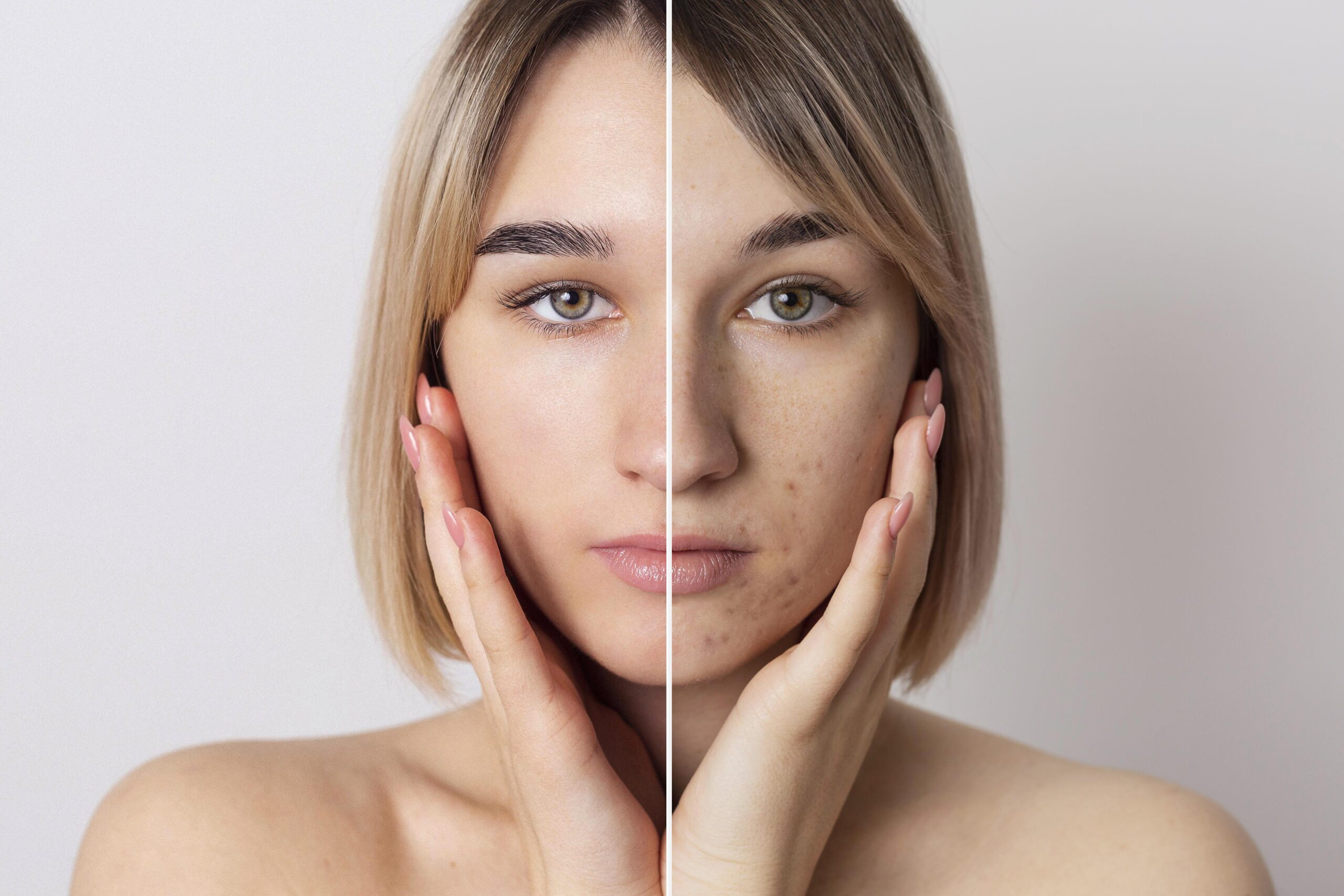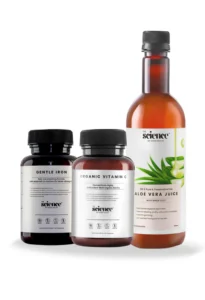Understanding the difference between acne and pimples is vital for anyone looking to achieve healthier skin. Many people mistakenly use these terms interchangeably, but they are distinctly different. Acne is a chronic skin condition caused by clogged pores, excess oil production, and bacterial inflammation. Pimples, on the other hand, are individual inflamed spots that appear occasionally and are usually temporary.
Knowing the difference between acne and pimples can help you select the right treatments, prevent scarring, and improve overall skin health. In this comprehensive guide, we will explore the causes, symptoms, and management of acne and pimples, provide preventive measures, and answer frequently asked questions to help you maintain clear, radiant skin.
What is Acne?
Acne is a persistent and often distressing skin condition that affects millions of people worldwide. It is caused when hair follicles or pores become blocked with excess sebum, dead skin cells, and bacteria, resulting in inflammation. This leads to the formation of different types of acne lesions that can appear on the face, neck, back, chest, and shoulders.
Types of acne include:
- Blackheads (open comedones): Small dark spots on the skin caused by clogged pores that are open to air.
- Whiteheads (closed comedones): Small, white bumps formed when clogged pores are closed.
- Papules: Small, red, tender bumps without pus.
- Pustules: Inflamed bumps filled with pus, commonly called pimples.
- Nodules: Large, hard, painful lumps beneath the skin.
- Cysts: Severe, deep, pus-filled lesions that can lead to scarring if untreated.
The causes of acne are multi-faceted. Hormonal imbalances during puberty, menstrual cycles, pregnancy, or stress can trigger excessive sebum production. Genetics can also play a role, making some people more prone to acne. Environmental factors like pollution, humidity, and exposure to oily substances may exacerbate the condition. Poor diet, inadequate hydration, and irregular sleep can further worsen acne.
The physical appearance of acne can be distressing, but the emotional impact is equally significant. Acne can reduce self-esteem, lead to social anxiety, and cause depression in severe cases. Therefore, understanding the difference between acne and pimples and adopting proper care is essential for both physical and mental well-being.
What are Pimples?
Pimples are inflamed, red bumps that develop on the skin due to clogged pores. They are often a symptom of acne but can also occur independently due to hormonal fluctuations, stress, or temporary skin irritation. Unlike acne, which is a chronic and ongoing condition, pimples are typically short-lived and resolve on their own or with minimal treatment.
Pimples can appear as small red bumps or as larger, cystic lesions that are painful and more prominent. The formation of pimples occurs when bacteria, oil, and dead skin cells block a pore, leading to inflammation and redness. They can be triggered by a variety of factors including hormonal changes during puberty, menstruation, or stress, as well as poor skincare practices such as using heavy, oily products or not cleansing properly.
Recognizing the difference between acne and pimples is important for treatment. While pimples can often be managed with over-the-counter topical treatments, gentle cleansing, and lifestyle adjustments, acne may require a combination of medical interventions, consistent skincare routines, and holistic approaches to control flare-ups and prevent scarring.
Key Difference Between Acne and Pimples
The difference between acne and pimples lies in their nature, duration, severity, and treatment requirements. Understanding these differences helps in managing skin health effectively and prevents unnecessary treatments or anxiety.
- Definition: Acne is a chronic, long-term skin condition characterized by multiple types of lesions, whereas pimples are isolated inflamed spots that can occur with or without acne.
- Duration: Acne is persistent and can last for months or years, often recurring, while pimples are usually temporary and heal within a few days to weeks.
- Types: Acne includes a variety of lesions such as blackheads, whiteheads, papules, pustules, nodules, and cysts. Pimples, in contrast, are individual bumps that appear sporadically.
- Treatment: Acne management requires a comprehensive approach, including lifestyle modifications, medical treatments, and consistent skincare routines. Pimples may only need spot treatment, improved hygiene, or minor topical applications.
Understanding this key distinction ensures you address the root cause of your skin issues and choose appropriate treatments rather than applying temporary fixes. Recognizing the difference between acne and pimples also reduces stress and helps in creating a sustainable skincare plan for long-term results.
How to Manage Acne and Pimples
Lifestyle Adjustments:
- Eat a balanced diet with fruits, vegetables, and whole grains.
- Stay hydrated to help flush toxins and maintain skin elasticity.
- Practice stress management techniques such as yoga, meditation, or regular exercise.
- Ensure adequate sleep to support hormonal balance and skin regeneration.
Skincare Tips:
- Cleanse your face gently twice daily.
- Avoid harsh scrubbing or over-washing.
- Use non-comedogenic, oil-free products suitable for your skin type.
- Exfoliate moderately to remove dead skin cells without irritating the skin.
Medical Treatments:
- Consult a dermatologist for persistent or severe acne.
- Prescribed topical or oral medications can help reduce inflammation and prevent new breakouts.
- Regular follow-ups can adjust treatments as your skin condition changes.
Natural Interventions:
- Incorporate herbal remedies such as aloe vera or tea tree oil for their anti-inflammatory properties.
- Holistic wellness practices, including detox diets and supplements, may support skin health from within.
Preventive Measures
Do’s:
- Cleanse your face twice daily using a gentle cleanser.
- Use non-comedogenic and oil-free skincare products.
- Maintain a healthy, balanced diet and consistent sleep schedule.
- Stay hydrated and avoid excessive sugar and processed foods.
Don’ts:
- Avoid picking, squeezing, or scratching pimples.
- Do not over-wash or use harsh exfoliants that irritate the skin.
- Limit oil-based or heavy skincare products that can clog pores.
- Avoid stress triggers where possible, as they can exacerbate acne and pimples.
Explore Smriti Kochar Ultra-Wellness Program
Skin issues like acne and pimples are more than just surface-level concerns; they reflect deeper imbalances within the body. At Smriti Kochar’s Ultra-Wellness Program, we focus on holistic healing to help you achieve clear, healthy skin naturally. Our program uses proven, natural interventions to restore balance and support skin health from the inside out. Transform your skin and overall wellness in just 4–6 months without relying on medications. Take the first step toward radiant, healthy skin and total well-being today: Start Your Healing Journey Now.
Conclusion
Understanding the difference between acne and pimples is essential for effective skin management. Acne is a chronic condition with multiple lesion types, while pimples are temporary, isolated inflamed spots. Proper lifestyle adjustments, skincare routines, medical guidance, and natural interventions can help manage both conditions and improve skin health.
For those looking to enhance skin health further, consider the Glowing Skin Bundle, which naturally nourishes and rejuvenates the skin from within.
Read Our Latest Blogs
How to Remove Acne Scars Naturally in a Week | What Causes Acne | Baby Acne | Body Acne Treatment | Acne Free Diet Plan – 30 Days Clearer Skin | Aloe Vera for Acne
Frequently Asked Questions
Ans: No, acne is a chronic skin condition, while pimples are individual inflamed spots that can occur with or without acne.
Ans: Yes, pimples can appear due to temporary irritation, bacterial infections, or hormonal fluctuations even if you do not have chronic acne.
Ans: High-glycemic foods, excessive dairy, sugary snacks, and processed foods can worsen acne symptoms.
Ans: Yes, stress can lead to hormonal changes that trigger the formation of pimples and worsen acne.
Ans: Consult a dermatologist if acne is persistent, severe, or leaving scars, or if home treatments do not show results within a few months.
Ans: Mild acne may improve with age, but chronic acne often requires treatment to prevent scarring and long-term skin issues.
Ans: Natural remedies like tea tree oil, aloe vera, and holistic wellness routines can help, but severe acne may still require medical treatment.
Ans: Gentle exfoliation, topical treatments, and professional procedures such as chemical peels or laser therapy can help minimize acne scars.




